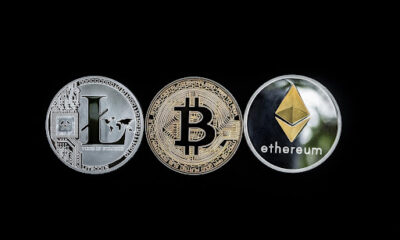Cryptocurrency
Solana Surges Past XRP, Now Fifth-Largest Crypto with $33.7 Billion Market Cap

Bitcoin
Bitcoin Holds Above $67,000 Amid Trump Win Bets
Cryptocurrency
Binance Expands Crypto Access in West and Central Africa With Mobile Money Integration
Bitcoin
Bitcoin Fails to Hold $63,000 Amid Weak Risk Appetite, Growing Selling Pressure
-

 Education4 weeks ago
Education4 weeks agoFederal Government Approves 133% Allowance Boost for NYSC Members, Now ₦77,000
-

 News3 weeks ago
News3 weeks agoBbnaija’s Wanni Wins Innoson Car Challenge, Secures First Vehicle with Twin Sister
-

 Business3 weeks ago
Business3 weeks agoNigerian Businesses Slash Dollar Exposure as Naira Depreciation Deepens
-

 Technology3 weeks ago
Technology3 weeks agoOpenAI’s Valuation Soars to $157 Billion After $6.6 Billion Funding Round
-

 Investment4 weeks ago
Investment4 weeks agoVice President Shettima Calls on Global Investors to Trust Nigeria’s Economic Reforms at UNGA
-

 Investment3 weeks ago
Investment3 weeks agoFG Secures $200m Afreximbank Investment For Creative Industry
-

 Telecommunications4 weeks ago
Telecommunications4 weeks agoTelecom Firms Face N56 Billion Monthly Diesel Bill Amid Power Woes
-

 Banking Sector3 weeks ago
Banking Sector3 weeks agoUnity Bank, Anwbn Empower Women Entrepreneurs With Ai, Digital Marketing Skills




























